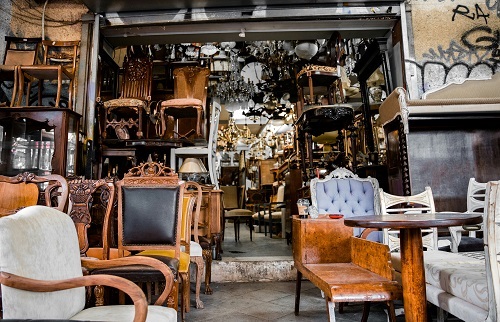Furniture Business

Type: Production and Trading
Key Product/s for Sale:
- Office furniture (desks, chairs, cabinets)
- School furniture (desks, lockers)
- Home furniture (sofa sets, tables, beds, wardrobes)
- Custom-made furniture based on customer specifications
Technology Considerations: Basic carpentry tools and equipment for furniture production. Utilize mobile phones and social media platforms for marketing and customer engagement.
Market for the Product/s: Target schools, offices, and residential areas in urban and semi-urban locations with demand for quality and unique furniture products.
Key Inputs into the Business:
- Materials: Quality timber and other raw materials for furniture production
- Labor: Skilled carpenters for furniture making and repair
- Equipment: Carpentry tools, machinery, and workshop infrastructure
Product Preparation Process: Design and manufacture furniture products based on customer requirements or market demand.
Ensure quality craftsmanship and attention to detail in furniture production.
Quality Considerations: Use high-quality timber and materials for durable and visually appealing furniture products. Incorporate creativity and stay updated with furniture trends to offer unique designs.
Cost of Investment:
- Carpentry Skills Training:
Cost: Approximately Ksh 10,000 to Ksh 20,000
This includes enrollment fees for vocational training institutions offering carpentry courses
- Procurement of Materials and Equipment:
Cost: Approximately Ksh 20,000 to Ksh 40,000
This includes purchasing timber, tools (e.g., saws, hammers, chisels), and safety equipment (e.g., goggles, gloves). - Business Licensing Fees:
Cost: Approximately Ksh 5,000 to Ksh 10,000
This includes obtaining necessary permits and licenses from county government offices or the county council. - Operational Expenses:
Cost: Approximately Ksh 15,000 to Ksh 30,000
This includes initial rent for workspace, utility bills, transportation costs, and other miscellaneous expenses.
Total Estimated Startup Capital:
Minimum: Ksh 50,000
Maximum: Ksh 100,000
Required Operational Infrastructure: Workshop or production space with adequate ventilation and safety measures. Storage facilities for timber and finished furniture products. Basic office setup for administrative tasks.
Most Suitable or Viable Location of the Business: Urban or semi-urban areas with accessibility and visibility for potential customers. Proximity to timber suppliers and target markets such as schools, offices, and residential areas.
Potential Sources of Investment Capital: Personal savings, loans, partnerships, or investors interested in furniture production and trading ventures.
Requirements for Effective Management: Efficient inventory management, skilled workforce management, and customer service excellence to ensure customer satisfaction and repeat business.
Role of Mobile Phone and ICT in the Business: Utilize mobile phones for communication with suppliers, customers, and marketing purposes. Explore the use of social media platforms for showcasing furniture designs, customer engagement, and online sales.
Statutory Regulations and Licenses: Obtain business permits and licenses from county government offices or county council offices to operate legally. Ensure compliance with health and safety regulations.
Pricing: Offer competitive pricing based on production costs, market demand, and quality of furniture products. Implement pricing strategies to maximize profitability while remaining attractive to customers.
Profitability: Profit margins depend on factors such as production costs, pricing strategy, sales volume, and operational efficiency. Focus on delivering high-quality products and excellent customer service to drive profitability and business growth.
Next Steps to Take: Secure necessary business permits and licenses, invest in training and equipment for furniture production, establish supplier relationships, set up production facilities, and implement marketing strategies to attract customers. Continuously monitor market trends and customer feedback to adapt and improve business operations for sustained success

